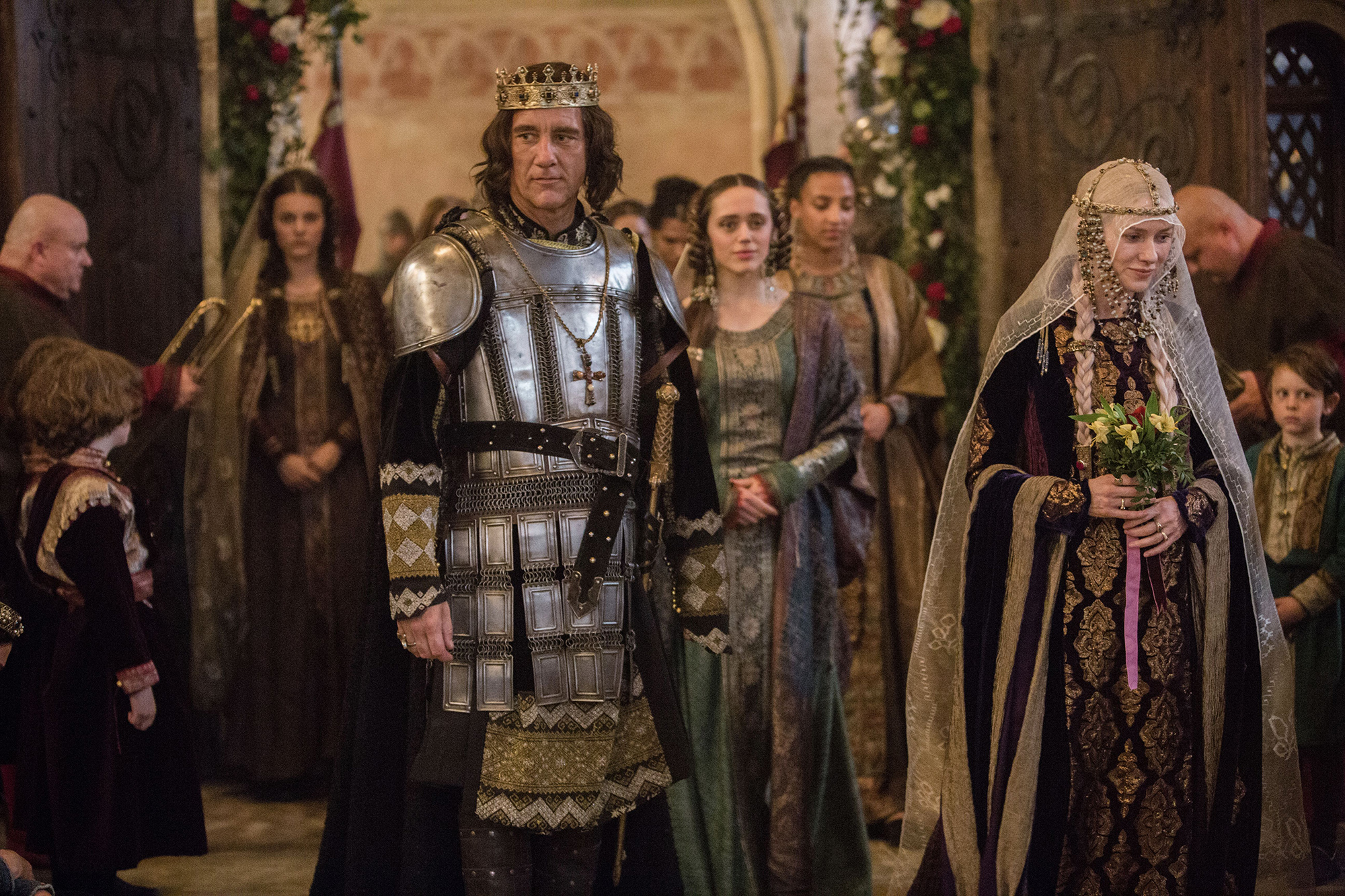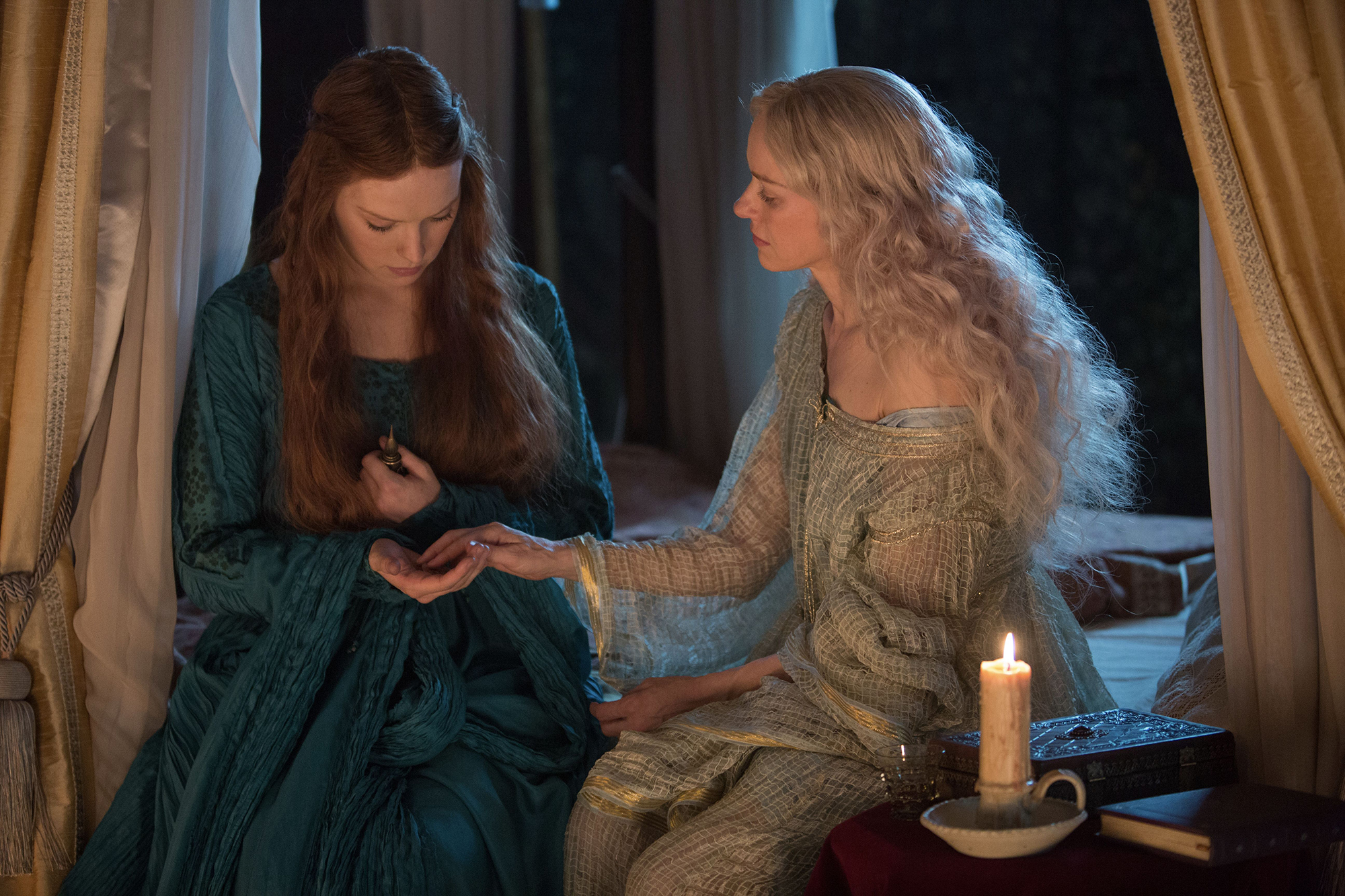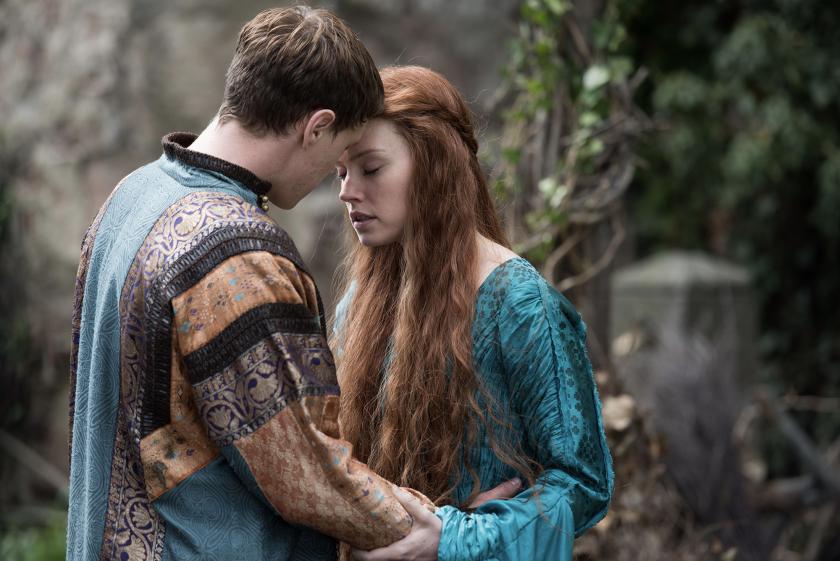Ophelia is one of Shakespeare’s most iconic yet underdeveloped dramatic roles. A sweet and naïve girl, she’s driven mad by Hamlet’s wavering affections and her father’s death. She was often the subject of paintings, yet rarely of novels until the 21st century. Ophelia, starring Daisy Ridley, is an adaptation of Lisa Klein’s 2006 book of the same name, and does a valiant job at not only filling in the blanks but bringing some flair of its own.
Ophelia is a precocious child of the Danish court, handpicked by Queen Gertrude (Naomi Watts, pictured below right) to join her ladies-in-waiting. She soon becomes the Queen’s confidant, reading her stories and fulfilling errands. This access lends her privy to the royal family’s failing marriage and the machinations of the King’s brother, Claudius (Clive Owen, pictured below left). When Prince Hamlet (George MacKay) returns from university, she becomes entwined in the rise and fall of a dynasty. Ophelia has a tough act balancing loyalty to the source material and finding its own rhythm. Key to what works is Daisy Ridley, who brings guile and fidelity to Ophelia without ever betraying the original role. She undoubtably looks the part, immediately bringing to mind John Everett Millais’s masterpiece (which is referenced in the cinematography), but adds an agency that’s sorely lacking in the play.
Ophelia has a tough act balancing loyalty to the source material and finding its own rhythm. Key to what works is Daisy Ridley, who brings guile and fidelity to Ophelia without ever betraying the original role. She undoubtably looks the part, immediately bringing to mind John Everett Millais’s masterpiece (which is referenced in the cinematography), but adds an agency that’s sorely lacking in the play.
Semi Chellas’s script does a good job at expanding the women’s roles. Pivotal moments from Hamlet, such as the Queen’s remarriage or Ophelia’s mad singing, are no longer mysteries of the woman’s mind but logical steps to advance in a man’s world. Ophelia sees the folly in the men’s violent distractions, while the Queen numbs herself to them. In the end, they both reap what they sow.
Not everything works so well. It’s rather apt that Ridley stars, as at times it feels like watching one of Disney’s Star Wars films, shoehorning Shakespeare references with knowing winks. Some land neatly, such as Naomi Watts playing siblings like Claudius and the King are traditionally cast, and some come screeching in, such as a potion that mimics death. There’s also an attempt to mirror Shakespeare’s language without committing to new prose, which proves distracting. Ironically, at times it feels like the Hamlet scenes are getting in the way of Ophelia’s story, bending it out of shape to fit the pre-existing narrative. Scenes such as “The Mousetrap Play” are admirably staged, but Hamlet’s constant disappearances makes his relationship with Ophelia difficult to invest in. You can’t help but wonder why she doesn’t sack the unstable emo off altogether.
Ironically, at times it feels like the Hamlet scenes are getting in the way of Ophelia’s story, bending it out of shape to fit the pre-existing narrative. Scenes such as “The Mousetrap Play” are admirably staged, but Hamlet’s constant disappearances makes his relationship with Ophelia difficult to invest in. You can’t help but wonder why she doesn’t sack the unstable emo off altogether.
Still, it’s easier to forgive such inconsistencies when the film looks this good. Director Claire McCarthy and cinematographer Denson Baker rinse every drop of beauty from each frame. In an interview with theartsdesk earlier this week, McCarthy revealed the look is a tribute to Pre-Raphaelite art. It’s an apt comparison. Scenes feel tangibly historical but sumptuously composed, creating images that bely the likely small budget.
How well Ophelia works depends on what you’re expecting from it. As a partner piece to Hamlet, it’s an interesting twist on the traditional roles. As a standalone film, it somewhat suffers from its parent script. But particularly strong performances and beautiful imagery make it worth catching.















Add comment